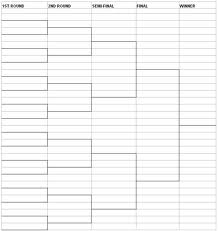Over the years, the IHF has tried two different approaches for the format of play following the preliminary groups. It has been more common to create main round groups for the top three from each group, but the method that it being used this time, with a ‘knock-out’ competition, starting with1/8-finals after the groups, has also been tried before. It is difficult to claim that one format is clearly the best one. Knock-out matches create excitement for the spectators, but may be a bit capricious and unfair to the teams. Main round groups are often very intriguing, but on some occasions they can be boring because the top positions are clear prior to the final matches.
One could say that it depends on how evenly matched the teams are on each occasion. If one can identify four-five superior teams, the knock-out approach may have an edge. But this time, it seems that the event is unusually full of strong and interesting teams, and it might be a shame that some of them will be out of contention after only one more game. I will come back to the match-ups for the 1/8-finals and beyond, but first I want to offer some comments on the group play.
In Group A, not many may have realized that the very first match between Slovenia and Tunisia would be the group final. But after the played it each other, they have gone on to dominate a strong group, leaving Norway and France to fight for the third place, and with Serbia somewhat surprisingly missing out on the knock-out stage. Tunisia has been an interesting team to watch. Yes, they often play a rough and undisciplined defense, but they display speed, technique and shooting power to make up for it. Perhaps one expected more from France, given their well-known emphasis on finding and educating young talents to step in at the senior level. But their win today against Slovenia may be the start of something, even if of course Slovenia had nothing to play for.
Denmark was not unexpectedly the clear winner in Group B, where the main fight was for places 2-5. Greece started out in a nervous fashion, showing inexperience, but they recovered and came in second. Algeria and Qatar were more consistent and played an interesting style of handball. It will be nice to see how they fare against European opponents in the 1/8-finals. Argentina must be seen as a disappointment, considering the strong showing of their senior team half a year ago. Here they seemed a bit thin and ‘lost’ at times. On the final day, they had to sit and hope for a miracle in the other games, but this did not happen.
Germany moved calmly through their first four matches, but still had to handle a ‘group final’ against Egypt on the final day. In the end, Germany overcame also this obstacle, and this meant that Egypt’s ‘unnecessary’ loss against Russia in the very first game moved them down to third place. Brazil dutifully beat Benin and a technical but ‘thin’ Korean team to make it to the 1/8-finals, but they were not able to match up fully with the top three teams over 60 minutes.
In Group D, it became clear that Portugal, Spain and Sweden were very evenly matched and in a class by themselves. Spain won the group, and on the final day we saw Portugal narrowly beat Sweden and grab the second place. But watch out for a Swedish team wanting revenge in their next match. My earlier prediction regarding the fourth and final place in the knock-out competition turned out to be justified, when Iran surprisingly clearly beat a very pale Hungarian team. It seems that Hungary was the most negative surprise of the event, notwithstanding the frustrations of Argentina and Serbia.
The tournament now continues with the 1/8-finals on Sunday. The pairings are as follows and the sequence of the matches also indicates which winners will play each other in the quarter-finals and semi-finals:
Denmark-Norway, Sweden-Russia; Greece -Tunisia, Spain-Brazil;;
Egypt-Portugal, Slovenia- Qatar; France-Algeria, Germany -Iran
It seems that the group winners appropriately were rewarded by generally getting less scary opponents. The ‘2 against 3’ games are harder to predict. I believe a lot in Tunisia but they get to face the home team; Portugal may be in for a particularly tough time. Sweden-Russia is probably the game that is the hardest one to predict, and France-Algeria is a traditional rivalry. Looking beyond that round, it is intriguing to see that a final between Spain and Germany is theoretically possible. But several other teams will try to ruin that, and my Scandinavian friends will surely complain if I do not mention them. I have not been able to watch Slovenia but they seem to be tough, and how would it be if a tournament that started with Slovenia-Tunisia would finish with the same pairing!

